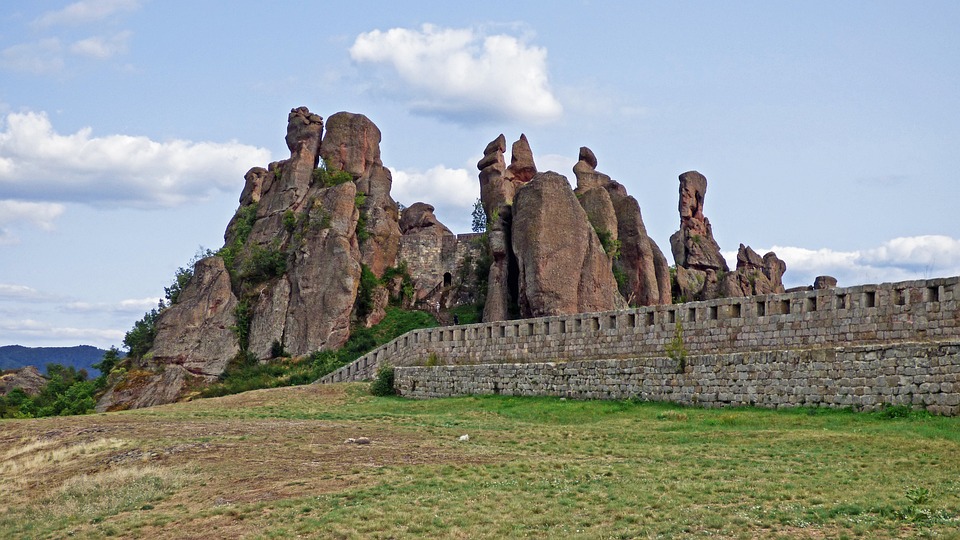Country Details
Bulgaria, officially known as the Republic of Bulgaria, is a country located in Southeast Europe. It is known for its rich history, picturesque landscapes, and diverse cultural heritage. Here are five important facts about Bulgaria:
1. Rich Historical and Cultural Heritage: Bulgaria has a fascinating history that dates back thousands of years. The country is home to ancient Thracian ruins, Roman archaeological sites, and medieval fortresses. One of Bulgaria's most famous historical sites is the UNESCO World Heritage-listed Rila Monastery, a stunning Orthodox monastery nestled in the Rila Mountains. The country's cultural heritage is also evident in its traditional music, dance, and folklore, which are celebrated through vibrant festivals and customs.
2. Natural Beauty: Bulgaria boasts diverse and breathtaking natural landscapes. The country is known for its majestic mountain ranges, such as the Rila, Pirin, and Rhodope Mountains, which offer opportunities for hiking, skiing, and outdoor activities. Bulgaria is also home to beautiful rivers, including the Danube and the Iskar, as well as stunning coastal areas along the Black Sea. The country's natural parks and reserves, such as the Central Balkan National Park and the Pirin National Park, showcase the country's rich biodiversity.
3. Rose Valley and Rose Oil Production: Bulgaria is renowned for its production of high-quality rose oil. The Rose Valley, located in central Bulgaria, is famous for its vast fields of roses and is the primary region for rose oil production. The rose oil, also known as "Bulgarian rose oil" or "attar of roses," is a valuable ingredient in perfumes, cosmetics, and traditional medicine. The annual Rose Festival, held in Kazanlak, celebrates the rose-growing heritage of the region.
4. Thracian Civilization: Bulgaria is associated with the ancient Thracian civilization, which thrived in the region over 2,000 years ago. The Thracians left behind impressive archaeological remains, including tombs, burial mounds, and exquisite gold artifacts. The UNESCO-listed Thracian Tomb of Kazanlak, with its unique wall paintings, is a significant example of Thracian heritage. The Thracians have greatly influenced Bulgaria's cultural identity and have left a lasting impact on the country's folklore and traditions.
5. Delicious Cuisine: Bulgarian cuisine is diverse, flavorful, and influenced by its Balkan and Eastern European neighbors. Traditional dishes include banitsa (cheese-filled pastry), kavarma (slow-cooked meat and vegetable stew), and shopska salad (a refreshing salad made with tomatoes, cucumbers, peppers, and white cheese). Bulgarian yogurt, known for its health benefits, is also a staple in the country. Wine production is significant in Bulgaria, with several regions producing excellent wines.
These important facts highlight Bulgaria's rich history, natural beauty, rose oil production, Thracian heritage, and delicious cuisine. Bulgaria offers a mix of cultural experiences, outdoor adventures, and historical exploration, making it a captivating destination for travelers seeking to discover the treasures of Southeast Europe.
Immigration Details
To immigrate to Bulgaria, there are several pathways available, including the Golden Visa program, establishing a company, work permits, studying, and obtaining citizenship or residency. Let's explore each option:
1. Golden Visa Program:
- Capital requirements: Bulgaria offers a Golden Visa program called the Investment Promotion Act (IPA) residency program. The capital requirements for the IPA program include investing a minimum of BGN 1 million (approximately €511,292) in a Bulgarian company, BGN 1 million in municipal or government bonds, or BGN 2 million (approximately €1,022,584) in registered capital of a Bulgarian public company.
- Residency permit: Upon making the qualifying investment, you can apply for an IPA residency permit, which grants temporary residency in Bulgaria.
- Timeline and fees: The timeline for obtaining an IPA residency permit can vary, but it generally takes several months. The fees associated with the program include application fees, legal fees, government fees, and other administrative expenses.
2. Establishing a Company:
- Capital requirements: To establish a company in Bulgaria, there are no specific capital requirements. The amount of capital needed will depend on the nature and scale of the business you plan to establish.
- Employing locals: As a company owner, you can employ Bulgarian citizens. The employment requirements and regulations can be obtained from Bulgarian authorities or legal professionals.
- Residency permit: As a company owner, you may be eligible to apply for a residency permit based on entrepreneurship or investment, subject to meeting specific criteria and requirements.
- Timeline and fees: The timeline for establishing a company and obtaining a residency permit can vary, but it generally takes several months. The fees can include company registration costs, legal fees, visa application fees, and other administrative charges.
3. Work Permit:
- Finding a job: Securing a job offer from a Bulgarian employer is crucial for obtaining a work permit. The employer will need to sponsor your work permit and provide necessary documentation, including an employment contract and proof of qualifications.
- Work permit: Once you have a job offer, your employer will apply for a work permit on your behalf. The type of work permit will depend on the job category and your qualifications.
- Residency permit: Depending on the duration of your employment and circumstances, you may be eligible to apply for a residency permit based on employment.
- Timeline and fees: The processing time for work permits and residency permits can vary, but it generally takes several months. The fees can include work permit application fees, legal fees, and other administrative charges.
4. Study-based Immigration:
- Obtain admission: Apply and get accepted into a recognized educational institution in Bulgaria.
- Student visa: Once accepted, you will need to apply for a student visa, which allows you to reside in Bulgaria for the duration of your studies.
- Residency permit: Depending on your circumstances, you may be able to transition from a student visa to a residency permit based on employment or other eligible categories.
- Timeline and fees: The processing time for student visas and residency permits can vary, but it generally takes several months. The fees typically include visa application fees, tuition fees, and other administrative charges.
5. Citizenship or Residency:
- Citizenship: Obtaining Bulgarian citizenship typically requires residing in Bulgaria for a specified period, demonstrating knowledge of the Bulgarian language, passing citizenship tests, and meeting other eligibility criteria. Dual citizenship is allowed in Bulgaria.
- Residency permit: If you do not qualify for citizenship, you may consider applying for a permanent residency permit, which grants legal residency status in Bulgaria without citizenship rights.
- Timeline and fees: The timeline for obtaining citizenship or a residency permit can vary significantly, often taking several years. The fees depend on
the specific process, including application fees, language test fees, legal fees, and other administrative costs.
It's important to note that immigration regulations and requirements in Bulgaria can change over time. Therefore, it's advisable to consult with Bulgarian authorities or seek professional advice to obtain the most accurate and up-to-date information based on your specific circumstances.



Add a review